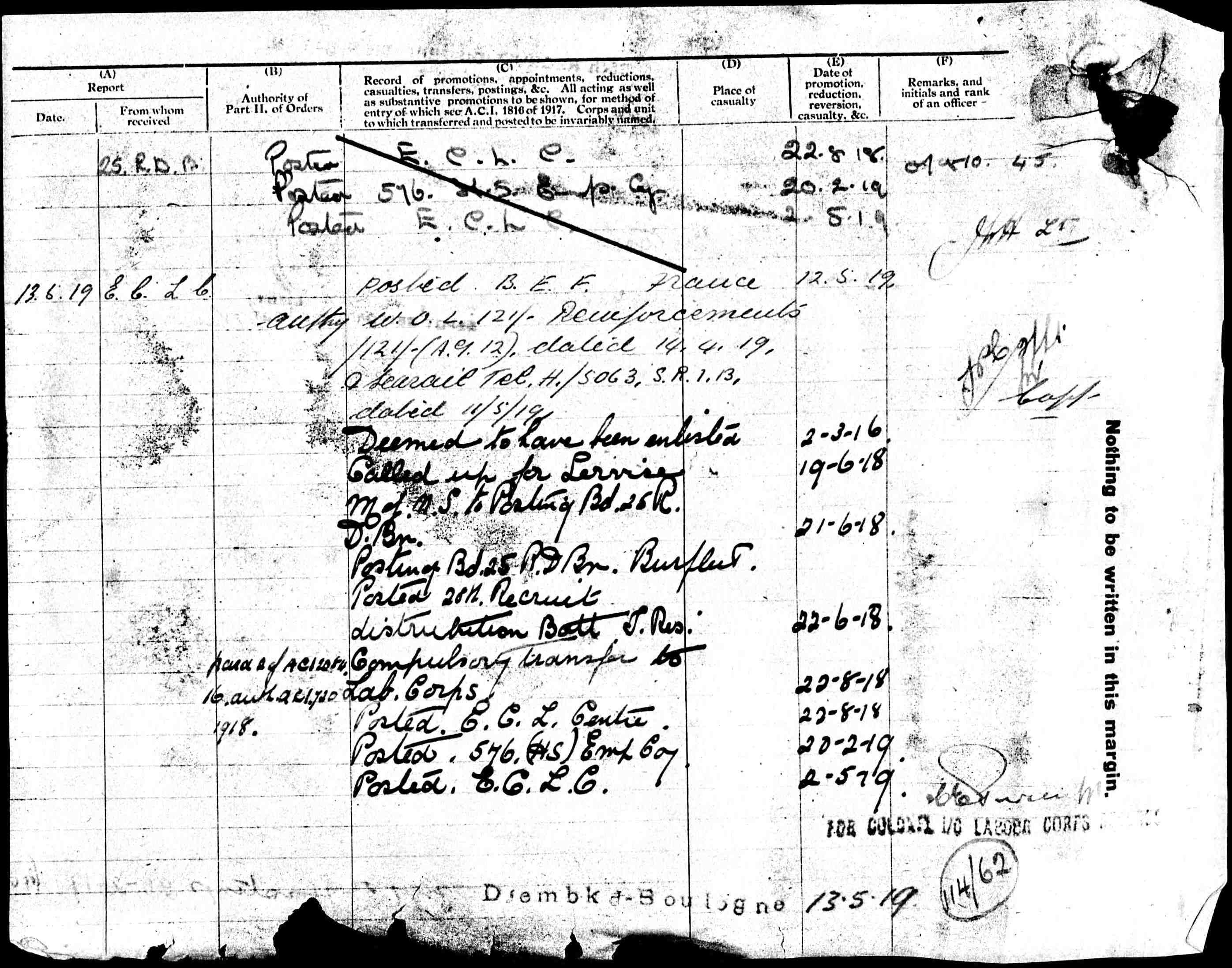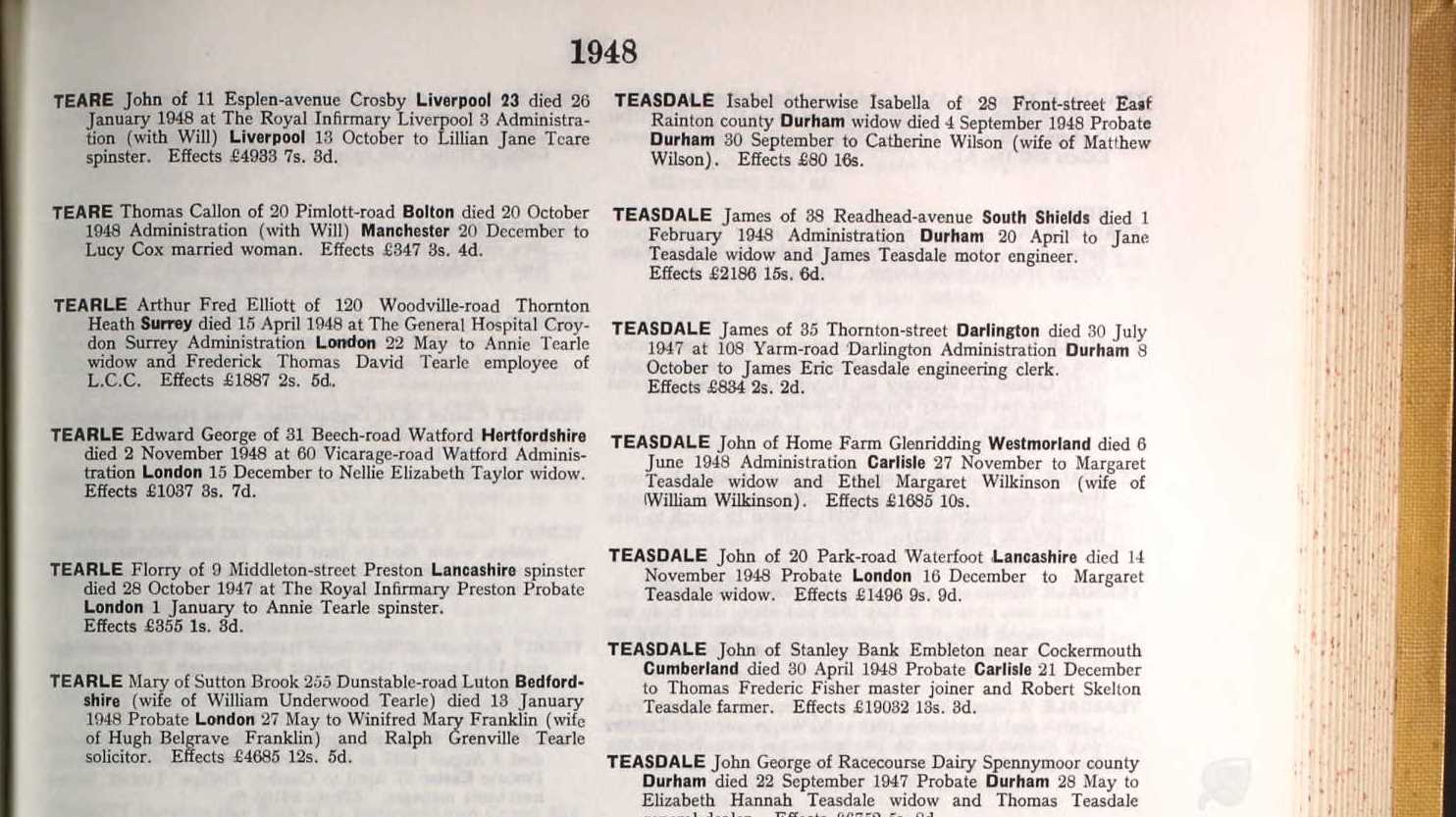It is not very often, in the 20th Century, that a man and his son go to the same war, but for Edward Joseph Tearle 1874 of Watford, and his son, Edward George Tearle 1898, that is exactly what happened. I shall start with the entry in National Roll of the Great War:
Edward George is a little bit lucky. The phrasing of the middle sentence exaggerates his importance a little bit, and “frequently in forward areas” means he was not very often in the line of fire. It is true, though, that Labour Corps men were used for replacement battalions, and often Labour Corps units were kept within the range of artillery for long periods. So we are not to downplay the danger, nor the effect that artillery, and the stench of death and disease would have on a twenty-year old fresh from the rural quietness of early Hemel Hempstead.
In the 1911 census he is living with his family in Watford, and although at 13 years old is still at school, he has an after-school job as an errand boy. At the outbreak of war, he was only 16 years old, so he would not be eligible to go to war until he was at least 18 years old. When he did so, his occupation was Cocoa Presser, he was 5feet 11in tall (which was tall for those times) and 20years 4months old, with a scar on his left knee; and he did not want to go into the navy. He enlisted on 2 March 1916, and he was called up on 19 June 1918. The war still had five months to rage, and a lot of men died in that time. On Armistice Day alone 11,000 soldiers perished, more than were killed on D-Day in WW2.
When he was eventually called up, the medics pronounced him fit for training, in spite of “an old fracture of the right elbow. Very deficient action of right forearm.” He was posted to the BEF (France) and moved three times to different Labour Corps groups. It is not possible to say where he was or what he was doing at any time, but on 18 Oct 1919, he signed a form to say “I do not claim to be suffering from a disability due to my military service.” And that is the end of Edward’s military experience. Here is the sheet that tells you where and when he went; to me it is completely obscure:
In 1921, he married Nellie Elizabeth Boultwood in Watford and there would appear to be only one child from this marriage; Donald Edward Tearle 1922, born in Watford.
Edward George died in Watford in 1948 aged only 50. I think we will always wonder if the war was even partly responsible for this. Here is the notice of the probate of his will:
Edward’s ancestry information are the same as for his father, Edward Joseph Tearle 1874 of Watford.


